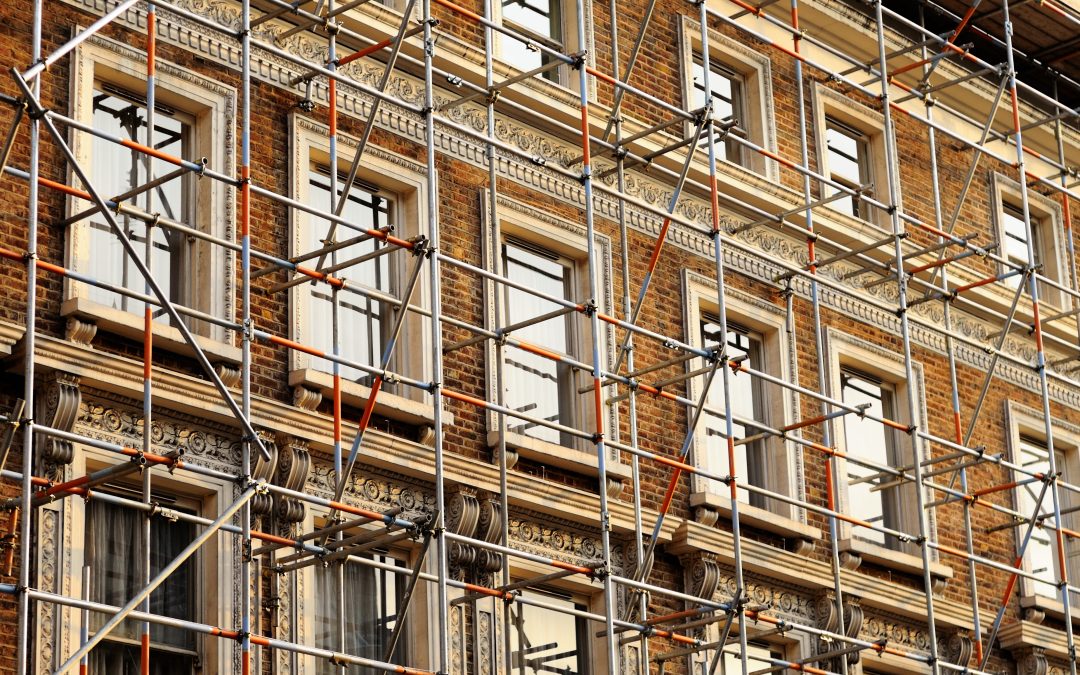
by admin | Jul 24, 2024 | Business
The King’s Speech 2024 marks the start of the new government’s legislative programme. It introduces 39 new Bills, addressing areas from planning and English devolution to renters’ and leasehold reform, infrastructure, and skills. This agenda seeks to tackle challenges in housing, energy security, and sustainability, aiming to enhance the well-being of consumers.
Planning and Infrastructure Bill
The government is keen on immediate planning reforms to boost economic growth. This Bill will modernise the National Grid, meet future housing needs, and streamline decisions on major infrastructure projects. It addresses compulsory purchase and compensation rules, specifically ‘Hope Value’ in land for affordable housing. With a target of 1.5 million new homes, RICS supports this initiative, advocating for modern local housing plans and efficient use of Section 106 and Community Infrastructure Levy funding.
National Wealth Fund Bill
This Bill, designed to continue the levelling-up agenda, allocates £7.3 billion for transformative investments across the UK. It prioritises the industrial strategy, economic growth, and clean energy missions, including hydrogen infrastructure and carbon capture technologies. Effective cost, project management, and carbon assessments, areas where RICS members like John Burke Associates excel, are crucial for the success of these investments.
English Devolution Bill
Further devolution of powers across England will enhance local decision-making in strategic planning, transport, skills, and employment. RICS collaborates with metro mayors and combined authorities on housing decarbonisation projects, local rental charters, and planning reforms. The challenge lies in coordinating strategies across multiple local authorities, a task where RICS expertise is vital.
Great British Energy Bill
The creation of Great British Energy aims to manage and operate clean power projects. The government targets a fourfold increase in offshore wind and solar capacity and a doubling of onshore wind. The Crown Estate Bill supports this by removing restrictions on marine activities. John Burke Associates plays a key role in land acquisition, project management, and cost management for these renewable energy projects.
Skills England Bill
This Bill seeks to simplify the skills system and create Skills England to oversee apprenticeship and technical education. RICS advocates for a Built Environment Skills Taskforce to identify and plan for future housing, infrastructure, and sustainability needs.
Renters’ Rights Bill
This Bill continues efforts to reform the rental sector. It aims to end ‘no fault’ evictions and strengthen tenants’ rights while supporting landlords in cases of anti-social tenants or significant rent arrears. Expanding the Decent Homes Standard to the private rental sector is a positive step, but support for landlords is essential to prevent them from leaving the market.
Leasehold and Commonhold Reform Bill
This Bill continues reforms in leasehold rights and promotes commonholds to give residents more control over their homes. RICS recognises the benefits of commonholds but also the challenges in management. They will work with the government to support this transition and ensure a robust framework for those involved.
RICS Response
Tina Paillet FRICS, President of RICS, welcomes the planning reforms highlighted in the King’s Speech 2024. She emphasises the correlation between GDP growth and infrastructure delivery, and the importance of holistic built environment policy. The Skills England Bill is a positive move to address the skills shortage, essential for meeting housing and infrastructure targets. The Renters’ Rights Bill is also welcomed, but with a call for balance to support tenants and landlords.
Conclusion
In conclusion, as RICS members John Burke Associates is committed to supporting the government’s ambitious legislative agenda, providing our expertise to ensure the success of these initiatives and the delivery of a net-zero economy.

by admin | Jun 28, 2024 | Uncategorized
Here at John Burke Associates, we have had the pleasure of working on some of the most exquisite architecture. From innovative modern designs to sublime historical buildings, each project is enjoyable through its individual merit. For example, state-of-the-art technology used in modern construction is constantly evolving, giving developers innovative ways to build. Thus, providing project managers such as ourselves with new and exciting methodologies and process models. However, there is something about historical architecture, which is thought-provoking, when one considers architecture before technology.
Why is Historical Building Preservation Important?
In addition to the law, there is an abundance of reasons to support the preservation of historical buildings and architecture. Whilst the covenants of working on a listed building are often more complicated, the reward is also much higher. Here are a few reasons we believe preserving history is also beneficial.
Intrinsic Value
Many historic buildings play a bigger role in our communities than you may imagine. The grand designs and intricate details of older buildings were created by materials such as rare hardwood from primary forests which no longer exist. Such buildings are often focus points for towns and cities to serve as a reminder of the area’s history.
Environmental Considerations
In an era where net zero is at the forefront of the construction industry’s priorities, refurbishment is a positive step. Regenerating old buildings to give them a new lease of life saves energy resources spent on building materials, equipment, transportation, and tools. Therefore, reducing the harms of construction waste while preserving historical beauty.
Educational & Cultural Aspect
As mentioned earlier, when looking at an older building, one can’t help but appreciate the beauty created without advanced technology. These buildings are evidence of the work our forefathers and ancestors put into making our towns and cities beautiful. Restoring and preserving historical buildings and landmarks enriches the cultural values of those residing nearby. Consequently, unifying goals towards a better future whilst preserving the fundamental history of construction.
Work with an Award-Winning Team
John Burke Associates provides a comprehensive portfolio of services to our clients. Our award-winning team have worked on a variety of projects pertaining to listed buildings. Our father and son team David and Dale Hayward received the prestigious Peter Wilson Award 2022. This was given for their work on the grade 1 listed Indigo Hotel in Bath a large and complex project. Most recently Gilly Carr FICWCI, for his monumental achievement at this year’s Building on Quality Awards.

by admin | Jan 16, 2024 | Business
As the temperature drops in the UK this week, the challenges of working in construction during snow or low temperatures are significant. Understanding the legal obligations, employer responsibilities, and practical advice for coping with these conditions is crucial for the safety and efficiency of any construction project. In this blog, John Burke Associates explains your key responsibilities to your workers.
Understanding UK Laws on Low-Temperature Working
In the UK, while there is no legal minimum outdoor working temperature, the Workplace (Health, Safety and Welfare) Regulations 1992 mandate that employers provide a ‘reasonable‘ working temperature. For construction sites, this means employers must assess risks and implement reasonable measures to protect workers from the cold. The Health and Safety Executive (HSE) provides guidance on working in cold conditions, emphasising the need for risk assessment and management.
Employer and Site Manager Responsibilities
Employers and site managers have a legal obligation to ensure the health and safety of their workers. This includes:
Risk Assessment:
Identifying potential hazards associated with low temperatures and snow, including risks of slips, trips, falls, frostbite, or hypothermia.
Providing Appropriate PPE:
Ensuring all workers have access to suitable personal protective equipment (PPE), such as insulated gloves, waterproof boots, and thermal clothing.
Site Safety Measures:
Implementing safety measures like gritting for icy surfaces, providing sheltered areas, and ensuring that equipment is safe to use in cold conditions.
Training and Awareness:
Educating staff about the signs of cold stress and the importance of regular breaks in warm areas.
General Advice for Working in Snow or Low Temperatures
Working in cold weather calls for specific precautions:
Stay Warm and Dry:
Layer clothing to stay warm and dry. Waterproof and windproof outer layers are essential.
Regular Breaks:
Take regular breaks in heated areas to prevent cold stress.
Stay Hydrated and Energised:
Drink warm fluids and eat high-energy foods to maintain energy levels.
Clear Snow and Ice:
Keep working areas clear of snow and ice to prevent accidents.
Check Weather Forecasts:
Be prepared and adaptable to changing weather conditions.
Conclusion
Working in construction during snow or low temperatures in the UK requires careful planning and adherence to safety standards. By understanding the legal framework, fulfilling employer responsibilities, and following general safety advice, construction sites can maintain productivity while ensuring the wellbeing of all personnel. Remember, the key to successful winter construction is preparation, awareness, and ongoing vigilance against the unique challenges posed by cold weather. Stay safe and stay informed!



